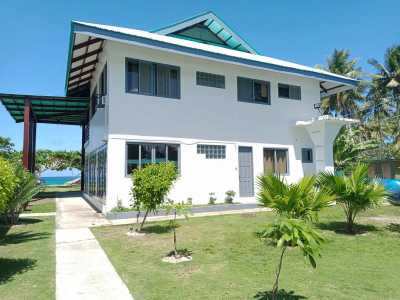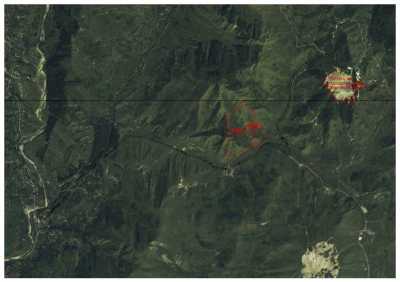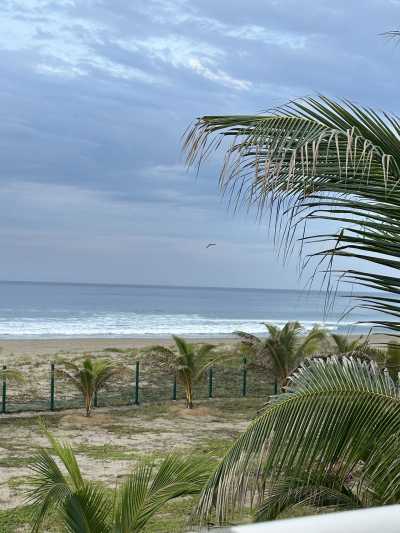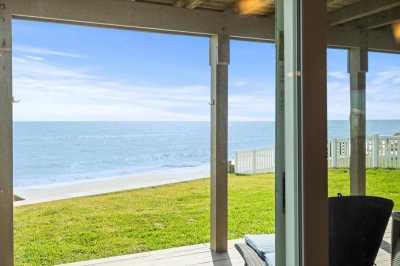The WPJ
THE WORLD PROPERTY JOURNALReal Estate Facts Not Fiction
Commercial Real Estate News

Japan, Australia Lead Asia Pacific Property Investment Momentum in Q2
Commercial News » Tokyo Edition | By Miho Favela | July 24, 2015 10:20 AM ET
According to CBRE, investment in Asia's property sector turnover grew 12% quarter-on-quarter in Q2 2015 to US$21 billion, despite a 21% year-on-year decline in investment turnover against a strong 2014.
Cross-border transactions increased 31% from the same time last year to US$7 billion, while cross-border investment sentiment remained firm throughout the period, with an increase in inquiries and transactions in tier-one cities like Shanghai in China. Despite short-term investor concerns, the Greek debt crisis and China's stock market volatility are expected to have no lasting repercussions in the Asia Pacific real estate investment environment.
CBRE Asia Pacific Research Senior Director Ada Choi commented, "This quarter, the Asia Pacific investment environment suffered from a persistent lack of investible stock and firm pricing by landlords amidst the ongoing low interest rate environment. While these factors have largely moderated capital flow across the region, overall transaction volumes showed an improvement from the previous quarter. Meanwhile, significant cross-border activity was also observed from institutional investors. In the drive for global diversification, three major transactions were closed in three different markets--Singapore, Hong Kong and Australia--across a variety of asset classes such as office, hospitality and developments, reinforcing the optimistic sentiment of large institutional players in the region's long-term investment potential.
Interest rate cuts in five major Asia Pacific markets and the weaker currencies in the region are expected to attract more foreign and US dollar-denominated capital seeking attractive opportunities, while moderating currency fluctuations in the coming years will further boost international investor confidence. Furthermore, we witnessed robust fund raising activity by experienced fund managers, with successful closures by managers reflecting healthy investor appetite. Successful fundraising, together with continued capital disposals from fund expiries, will translate to a steady stream of capital deployment over the course of 2015 and well into 2016."
Other key APAC investment highlights include:
- Japan and Australia led investment momentum for the quarter. China, which recorded further improved investor sentiment in Q2 2015, also saw robust activity, whilst interest picked up in India from selected private equity funds.
- Large institutional investors dominated cross border acquisitions in the region, specifically Middle East sovereign wealth funds. Three sizable transactions completed by the Abu Dhabi Investment Authority (ADIA) and the Qatar Investment Authority (QIA) amounted to a total value of over US$4 billion.
- The hotel sector recorded strong activity, with investment volume totaling over US$5 billion for the quarter. Hospitality assets in Japan and Australia were in high demand due to robust tourist spending in these markets.
- Factors that could affect investment activity include the pricing gap between vendors and buyers and intense competition for assets, and while the China stock market rout is not predicted to greatly impact real estate investment in the region, it may nevertheless cause short-term delays in decision-making and purchasing activities by commercial investors.
Sign Up Free | The WPJ Weekly Newsletter
Relevant real estate news.
Actionable market intelligence.
Right to your inbox every week.
Real Estate Listings Showcase

$2,500,000
Mixed-Use Land For Sale
Von Ormy, Texas

$2,495,000
Condo For Sale
Boca Raton, Florida

$795,000
Home For Sale
Cuenca, Ecuador

$2,620,000
Home For Sale
Tarzana, California

5,300,000 CAD
Home For Sale
Mission, Canada

$1,475,000
Townhome For Sale
Phoenix, Arizona

$2,800,000
Commercial New Construction For Sale
General Luna, Philippines

€1,600,000
Residential Land For Sale
Scortoasa, Romania

$740,000
Home For Sale
West Palm Beach, Florida

$1,575,000
Condo For Sale
Winter Park, Florida

$1,200,000
Residential Land For Sale
Puerto Escondido, Mexico

$1,375,000
Home For Sale
Flagler Beach, Florida
Related News Stories
Commercial Real Estate Headlines
- 2025 Prediction: U.S. Commercial Investment Recovery Expected to Gain Traction
- Holiday Retail Sales for 2024 to Hit Record $1 Trillion
- Tech, AI Industries Drive Largest Share of Office Leasing Activity in U.S.
- Commercial Real Estate Lending in U.S. Enjoys Strong Growth in Q3
- U.S. Multifamily Market Begins Recovery in Q3
- Commercial Investment in Japan Spikes 24 Percent Annually in Q3
- Despite Return-to-Office Mandates, U.S. Office Vacancies Continue to Rise
- PROPSIG Tech Startup Acquired by World Property Data
- U.S. Commercial Mortgage Debt Hits $4.7 Trillion in Q2 as Delinquencies Increase
- Hong Kong Class A Office Rents Continue to Downtick in Mid-Summer
- U.S. Office Landlords Tenant Concessions Decline for First Time in 4 Years
- U.S. Commercial Mortgage Originations Spike 27 Percent in Q2 Over Q1
- Phnom Penh's Commercial Office, Retail Markets Face Slowdowns in 2024
- Global Edge Data Center Market to Hit $300 Billion by 2026
- Commercial Property Transactions in Japan Dive 25 Percent Annually in Q2
- Delinquency Rates for U.S. Commercial Property Loans Downticks in Q2
- Megawarehouse Lease Deals in U.S. Increase in 2024
- Office Tenants' Flight to Quality Buildings Increases in 2024
- Commercial Lending in Japan Upticks 6 Percent Annually in Q1
- AI Driving Significant Global Data Center Growth in 2024
- Total U.S. Commercial Mortgage Debt Rises to $4.7 Trillion in Q1
- U.S. Commercial Mortgage Delinquencies Rise in Early 2024
- Asia Pacific Office Sector to Further Reprice Throughout 2024
- U.S. Retail Foot Traffic to Surpass Pre-Pandemic Levels by 2025
- Commercial Real Estate Lending in U.S. Slowed in First Quarter
- Japan Commercial Property Investment Volume Jumps 7 Percent in Q1
- Asia Pacific Commercial Property Investment Leads the World, Spikes 13 Percent
- Driven by High Rates, U.S. Commercial Lending Imploded 47 Percent in 2023
- After Two Year Slump, Prime Multifamily Metrics Uptick in U.S.
- Commercial Co-Broker Commissions Not Affected by NAR-DOJ Settlement, Yet
- U.S. Office Buildings with Upscale Tenant Amenities Still Enjoy Premium Rents in 2024
- U.S. Commercial, Multifamily Mortgage Delinquency Rates Uptick in Q4
- U.S. Commercial Mortgage Debt Continued to Rise in 2023, Hits $4.7 Trillion
- Nonresidential Construction Spending in the U.S. Falls Sharply in January
- U.S. Multifamily Construction Starts to Decline in 2024
- Commercial Mortgage Lending in U.S. Shows Signs of Stabilization in Late 2023
- Architecture Billings Decline in December as Soft Business Conditions Persist
- Government Sector Claimed Largest Portion of 100 Biggest U.S. Office Leases Signed in 2023
- U.S. Commercial, Multifamily Borrowing Dives 25 Percent Annually in Late 2023
- Record High Multifamily Construction Deliveries Drive Vacancy Rates Higher





